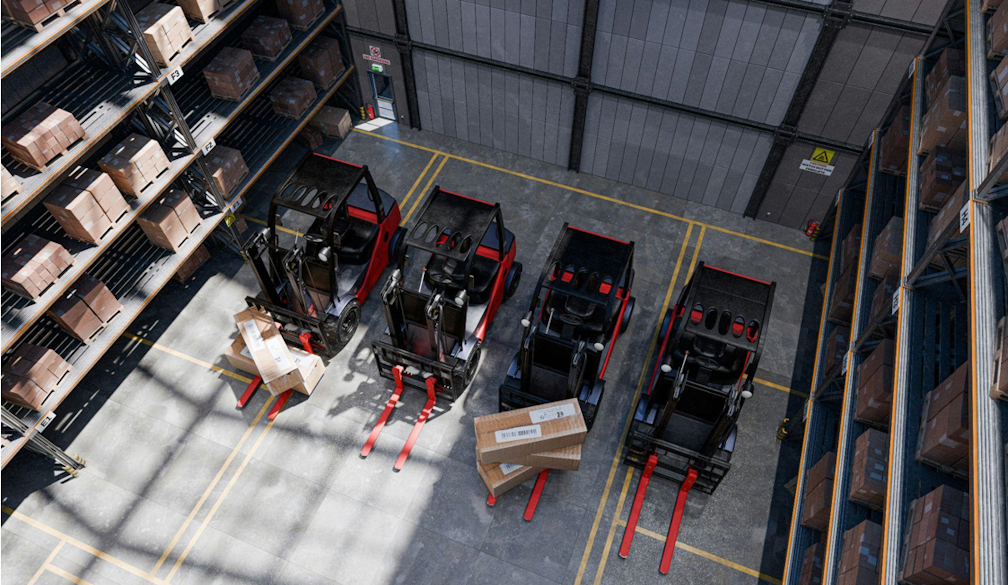Why Many Small Warehouses Are Choosing Rental Forklifts Over Buying Outright
- Written by Business Daily Media

- Small warehouses avoid heavy upfront costs by spreading expenses through rentals
- Renting makes it easier to adjust equipment to seasonal or project-based demand
- Service and breakdown support reduce downtime and surprise repair bills
- Access to newer models improves efficiency, safety, and compliance
If you manage a small warehouse, you already know how tight margins can get. Every purchase needs to pull its weight, and tying up capital in heavy equipment often feels like a risky move. That’s why many operators are turning to rental forklifts as a more innovative alternative. The shift is less about chasing trends and more about making everyday operations easier to manage. From keeping overheads steady to adjusting capacity when demand fluctuates, renting offers practical advantages that ownership often struggles to match.
The financial flexibility of renting
For small warehouses, cash flow can be unpredictable. One month might bring steady orders, while the next feels quieter than expected. In those moments, a forklift that has drained thousands from the budget sits in the corner as a reminder of a big financial commitment. Rentals avoid that pressure by spreading costs into manageable payments. You’re not locked into a large outlay upfront, which frees money to spend on staffing, stock, or other essential upgrades.
This kind of flexibility can mean the difference between running lean and feeling constantly stretched. Rental agreements also give you clearer visibility of costs, making it easier to plan ahead without the anxiety of sudden repairs or financing issues. For many warehouse managers, that predictability brings a sense of control that ownership rarely delivers.
Adapting to changing demand
Warehousing rarely follows a perfect schedule. One quarter might bring an influx of seasonal stock, and the next sees operations scale back. Owning a forklift in this situation creates a problem: when demand drops, the machine doesn’t stop costing you money. Renting avoids that imbalance. You can bring in an extra forklift for a busy period, then return it when things settle down.
This kind of flexibility allows smaller operators to respond quickly to contracts or opportunities without overcommitting resources. Instead of worrying about how to justify equipment during quieter months, you can focus on matching your fleet to the work in front of you. That responsiveness helps smaller warehouses stay competitive, especially when competing with larger operators who have deeper pockets.
Maintenance and support considerations
Keeping a forklift in top condition isn’t just about oil changes and inspections. Unexpected breakdowns can bring work to a halt, and repairs are rarely cheap. For a small warehouse, even a few days of downtime can disrupt operations and put pressure on staff. This is where rentals make a big difference. Most agreements include servicing, routine checks, and breakdown support, which means you don’t carry the risk of sudden repair bills.
Instead of juggling maintenance schedules yourself, you can rely on the provider to keep machines running safely and efficiently. That support also eases the pressure on staff who may not have the time or expertise to manage complicated servicing tasks. By taking that responsibility out of your hands, rentals keep your warehouse floor moving without the financial surprises that ownership often brings.
Access to newer models and safety features
Technology in material handling equipment changes quickly. Newer forklifts often deliver better fuel efficiency, improved ergonomics, and updated safety systems that protect both operators and stock. Buying outright makes it difficult for small warehouses to upgrade frequently, which means working with older machines that may not meet the latest standards. Renting, on the other hand, gives you the chance to access up-to-date models without a long-term financial commitment.
If you’re running a warehouse in Victoria, for example, forklift hire in Melbourne provides access to modern fleets that are regularly refreshed by local providers. That means you’re not stuck with outdated equipment, and you can align your choice of machine with the specific demands of your workload. Having access to current technology supports efficiency on the floor and makes compliance with workplace safety requirements far easier to manage.
The long-term balance between renting and ownership
While rentals suit many small warehouses, there are situations where ownership still holds appeal. If you know a forklift will be in constant use for years, ownership might eventually prove cheaper. The challenge is that this calculation depends heavily on the stability of your workload. Smaller operators often deal with uncertain demand, so the risk of underusing a purchased forklift is high.
Long-term rental offers a middle ground. It provides predictable costs without locking you into a purchase, and contracts can often be extended or adjusted as your needs change. This balance gives smaller businesses room to grow at their own pace. By reassessing regularly, you can make sure the equipment setup matches your warehouse’s direction instead of being tied to decisions made years earlier.
Conclusion
The move toward renting forklifts reflects a broader shift in how small warehouses approach investment. Flexibility, cost management, and access to support have become just as important as ownership. For operators under pressure to stay efficient without taking on heavy financial risks, rental solutions provide a practical path forward. This change isn’t about following a trend but about building resilience in an industry where margins are often tight and demands never stay the same for long.









